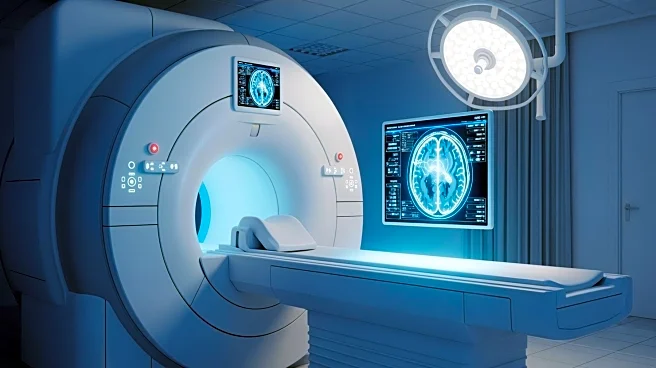What's Happening?
President Donald Trump has confirmed that he underwent an MRI scan during a recent health check, describing the results as 'perfect.' Speaking to reporters on Air Force One, Trump stated that his doctors
provided a 'very conclusive' update, emphasizing transparency about his health. The MRI scan follows previous reports of chronic venous insufficiency, a benign vein condition common among older adults, which had led to visible swelling in his legs and bruises on his hands. Trump's physician had earlier declared him in 'exceptional health' after a medical evaluation at Walter Reed National Military Medical Center. The White House had previously reported no evidence of deep vein thrombosis or arterial disease.
Why It's Important?
The health of President Trump has been a topic of public interest, especially given his age and recent medical conditions. His transparency regarding the MRI results may reassure supporters and stakeholders about his ability to fulfill presidential duties. The benign nature of his diagnosed condition, chronic venous insufficiency, suggests no immediate threat to his health, potentially stabilizing political dynamics and public confidence. However, the need for an MRI, typically not part of routine checks, raises questions about underlying health concerns, prompting calls for further transparency.
What's Next?
As President Trump continues his international travel, his health will likely remain under scrutiny. The administration may face pressure to disclose more details about the necessity of the MRI scan. Political commentators have already questioned the routine nature of the scan, suggesting potential undisclosed health issues. The White House may need to address these concerns to maintain public trust and avoid speculation.
Beyond the Headlines
The use of MRI scans, known for their safety and detailed imaging capabilities, highlights the advanced medical care available to high-profile individuals like President Trump. This incident underscores the importance of transparency in public figures' health disclosures, balancing privacy with public interest. The situation may influence future protocols for presidential health assessments.











